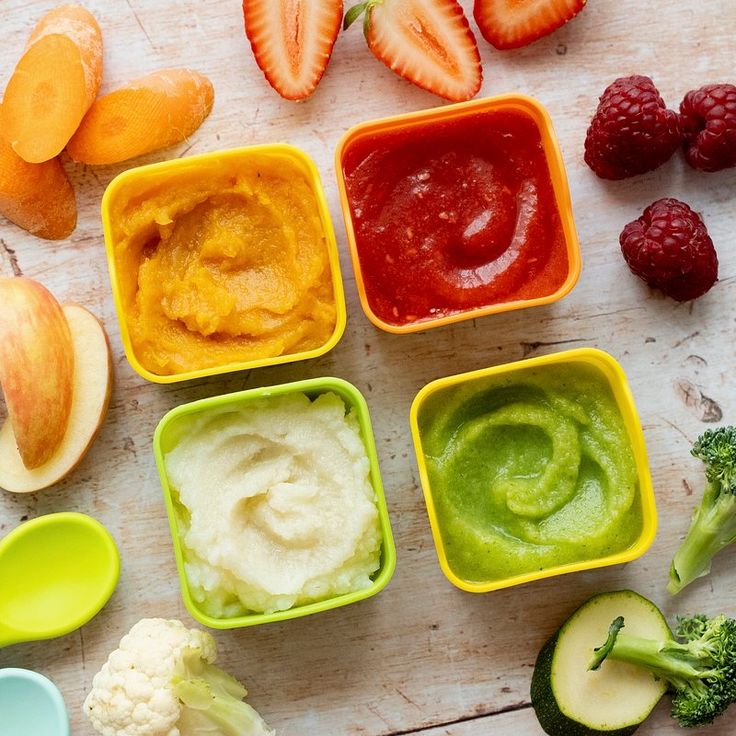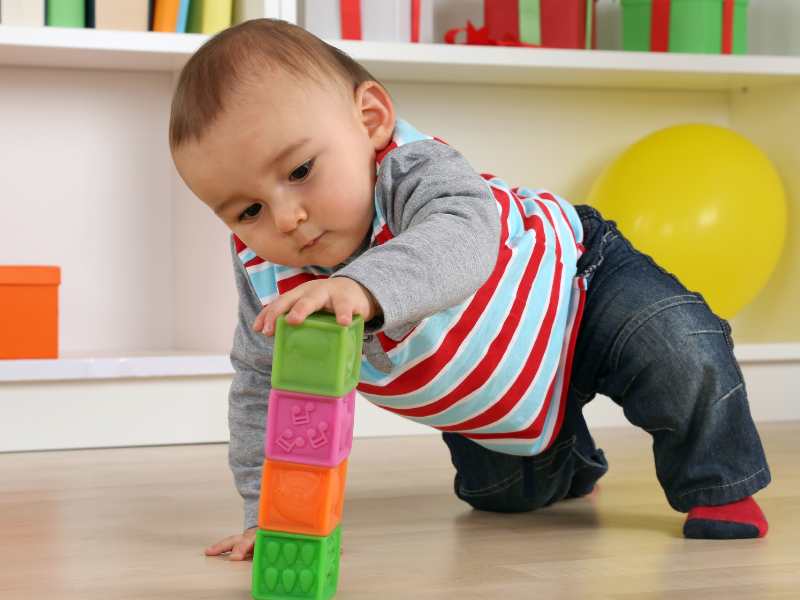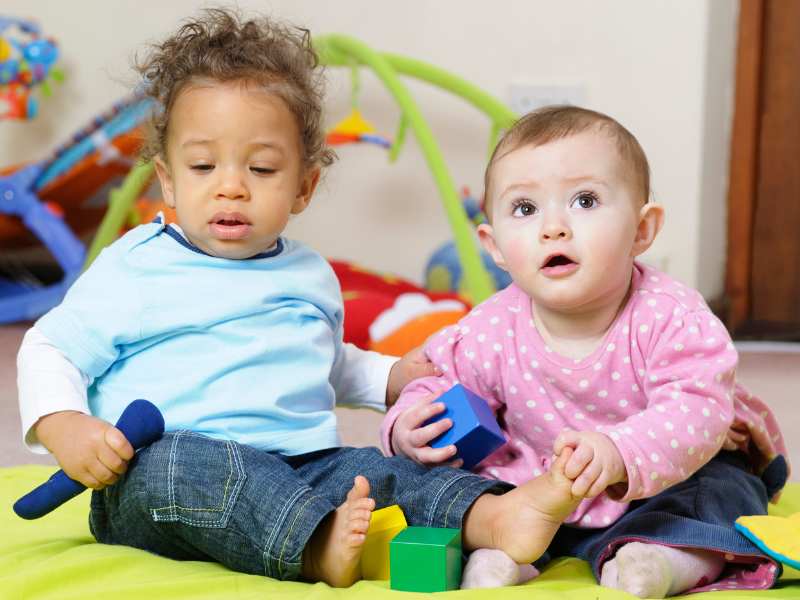This article is all about the 12 best ways to encourage healthy development in babies. Bringing a new baby into the world is a joyous and life-changing experience.
As parents and caregivers, we naturally want to ensure our little ones grow up healthy and strong.
While each child is unique, and there is no one-size-fits-all approach to parenting, universally recognized principles can guide us in fostering a nurturing and supportive environment.
In this blog post, let us look at some of the best ways to encourage healthy development in babies, focusing on creating a foundation that supports their physical, emotional, and cognitive growth.
Whether you’re a new parent or an experienced caregiver, these insights can help you provide the care and attention your baby needs to thrive.
Let us commence on this journey of nurturing and discovery together, as we delve into the essentials of promoting well-being in the earliest stages of life.
12 WAYS TO ENCOURAGE HEALTHY DEVELOPMENT IN BABIES:
1.Breastfeeding
 Breastfeeding is often recommended as the best source of nutrition for infants. Breast milk contains the ideal balance of nutrients for a baby’s growth and development.
Breastfeeding is often recommended as the best source of nutrition for infants. Breast milk contains the ideal balance of nutrients for a baby’s growth and development.
It is rich in antibodies that help protect babies from infections and illnesses. Breastfeeding also promotes bonding between mother and child and can have long-term health benefits for both, including a reduced risk of certain chronic conditions.
2. Sensitive Parenting
 Responsive parenting involves being attuned to your baby’s cues and responding appropriately to their needs.
Responsive parenting involves being attuned to your baby’s cues and responding appropriately to their needs.
This includes comforting them when they cry, feeding them when they’re hungry, and engaging with them during play.
Responsive interactions help babies develop a sense of security and trust, which is foundational for healthy emotional and social development.
This secure attachment forms the basis for healthy relationships and coping mechanisms later in life.
3. Safe Sleep Environment
 Creating a safe sleep environment is crucial for reducing the risk of Sudden Infant Death Syndrome (SIDS) and other sleep-related accidents.
Creating a safe sleep environment is crucial for reducing the risk of Sudden Infant Death Syndrome (SIDS) and other sleep-related accidents.
Key recommendations include placing babies on their backs to sleep, using a firm mattress, and keeping the crib free of soft toys, pillows, and loose bedding.
It’s also important to avoid overheating the baby and to ensure that they sleep in a smoke-free environment. A consistent bedtime routine can also help babies feel secure and develop healthy sleep patterns.
4. Regular Check-ups
 Regular pediatric check-ups are essential for monitoring a baby’s growth, development, and overall health.
Regular pediatric check-ups are essential for monitoring a baby’s growth, development, and overall health.
These visits allow healthcare providers to track milestones, administer necessary vaccinations, and identify any potential health concerns early on.
Parents can also receive guidance on feeding, sleep, and developmental milestones during these visits.
Early detection and intervention can prevent or address issues that could impact a child’s long-term health and development.
5. Nutrition

Providing a balanced diet is vital for a baby’s growth and development.
While breast milk or formula is the primary source of nutrition in the first six months, introducing solid foods around six months (with guidance from a healthcare provider) helps meet nutritional needs.
A variety of fruits, vegetables, proteins, and grains ensures that babies receive essential vitamins and minerals. Proper nutrition supports physical growth, brain development, and a strong immune system.
Establishing healthy eating habits early can also set the stage for a lifetime of good nutrition, it is one of the best ways to encourage healthy development in babies.
6. Baby push up Time
 Tummy time involves placing babies on their stomachs while they are awake and supervised.
Tummy time involves placing babies on their stomachs while they are awake and supervised.
This practice is important for developing the muscles in the neck, shoulders, and arms, which are essential for motor skills like rolling over, sitting, and crawling.
Tummy time also helps prevent flat spots from developing on the back of the baby’s head. It’s recommended to start with short periods and gradually increase the duration as the baby becomes more comfortable.
7. Reading Aloud
 Reading to babies from an early age supports language development and cognitive growth.
Reading to babies from an early age supports language development and cognitive growth.
The rhythm and melody of language, even before babies can understand words, help develop their auditory skills. As babies grow, they begin to recognize pictures, follow stories, and build their vocabulary.
Reading together also strengthens the bond between parent and child and fosters a love of books and learning that can last a lifetime.
8. Play and Exploration
 Play is a critical component of a baby’s development. Through play, babies learn about their environment, develop motor skills, and engage their senses.
Play is a critical component of a baby’s development. Through play, babies learn about their environment, develop motor skills, and engage their senses.
Interactive play with parents and caregivers helps develop social skills, while independent play allows for exploration and problem-solving.
9. Limit Screen Time
 Limiting screen time for babies under 18 months is recommended because excessive exposure to screens can interfere with crucial developmental processes.
Limiting screen time for babies under 18 months is recommended because excessive exposure to screens can interfere with crucial developmental processes.
Screen time can detract from interactive play and social interactions, which are vital for learning and development.
Instead of screen time, engaging in hands-on activities, reading, and outdoor play can support physical and cognitive development.
When screen time is introduced, it should be high-quality, age-appropriate content, and parents should watch together with their child to provide context and interaction.
10. Positive Reinforcement
 Positive reinforcement involves praising and encouraging desired behaviors, which helps to build a baby’s confidence and self-esteem.
Positive reinforcement involves praising and encouraging desired behaviors, which helps to build a baby’s confidence and self-esteem.
When parents and caregivers provide positive feedback, such as smiles, clapping, or verbal praise, babies are more likely to repeat those behaviors.
This positive interaction supports emotional development and helps babies understand social norms and expectations.
11. Social Interaction
 Social interaction with parents, caregivers, and other children is essential for developing social and emotional skills.
Social interaction with parents, caregivers, and other children is essential for developing social and emotional skills.
Through interactions, babies learn to communicate, share, and develop empathy. Playgroups, family gatherings, and other social settings provide opportunities for babies to interact with others and learn from observing social cues.
Social experiences also help babies develop a sense of identity and belonging, its a good and creative way to encourage healthy development in babies.
12. Physical Activity
 Encouraging movement and physical activity is important for developing gross and fine motor skills.
Encouraging movement and physical activity is important for developing gross and fine motor skills.
Activities like crawling, reaching, grasping, and walking help babies build strength, coordination, and balance.
Physical activity also promotes healthy growth and can support better sleep and overall well-being.
Creating a safe environment for exploration and providing opportunities for movement throughout the day are key to promoting physical activity.
THE ROLE OF NUTRITION IN A BABY’S DEVELOPMENT
1. Growth and Physical Development
 Proper nutrition provides the essential nutrients needed for a baby’s rapid growth during the first years of life.
Proper nutrition provides the essential nutrients needed for a baby’s rapid growth during the first years of life.
Nutrients like proteins, fats, vitamins, and minerals are vital for building tissues, muscles, and bones.
For instance, calcium and vitamin D are important for bone development, while protein is crucial for muscle growth.
Adequate nutrition helps ensure that babies reach developmental milestones, such as gaining weight, increasing in length, and achieving motor skills.
2. Brain Development
 The first few years of life are a critical period for brain development. Nutrients such as DHA (an omega-3 fatty acid), iron, iodine, choline, and zinc play significant roles in brain growth and function.
The first few years of life are a critical period for brain development. Nutrients such as DHA (an omega-3 fatty acid), iron, iodine, choline, and zinc play significant roles in brain growth and function.
For example, DHA is important for the development of the brain and retina, while iron supports the formation of hemoglobin and the delivery of oxygen to the brain.
Proper nutrition during this period can influence cognitive abilities, including learning, memory, and behaviour.
3. Immune Function
 A well-nourished baby has a stronger immune system, which is better able to fight off infections and illnesses.
A well-nourished baby has a stronger immune system, which is better able to fight off infections and illnesses.
Nutrients like vitamins A, C, D, and E, as well as zinc and selenium, are important for maintaining a healthy immune system.
For instance, vitamin A helps maintain the integrity of the skin and mucous membranes, which are the body’s first line of defense against pathogens.
Adequate nutrition supports the development and function of immune cells, helping babies resist infections and recover more quickly when they do get sick.
4. Preventing Deficiencies and Related Conditions
 Ensuring a balanced diet helps prevent nutrient deficiencies that can lead to specific health conditions.
Ensuring a balanced diet helps prevent nutrient deficiencies that can lead to specific health conditions.
For example, a deficiency in vitamin D can lead to rickets, a condition characterized by weak or soft bones. Iron deficiency can result in anemia, which can impair cognitive and physical development.
Providing a variety of nutrient-rich foods helps ensure that babies receive all the essential nutrients they need to stay healthy and develop properly.
5. Establishing Healthy Eating Habits
 Introducing a variety of healthy foods early on helps shape a baby’s taste preferences and eating habits.
Introducing a variety of healthy foods early on helps shape a baby’s taste preferences and eating habits.
Exposure to different flavors and textures can encourage a diverse and balanced diet as the child grows.
Establishing healthy eating habits in infancy can set the foundation for a lifetime of good nutrition, reducing the risk of obesity and related chronic diseases later in life.
6. Supporting Digestive Health
 Nutrition also plays a role in developing a healthy digestive system. For instance, breastfeeding helps establish a healthy gut microbiome, which is important for digestion and immune function.
Nutrition also plays a role in developing a healthy digestive system. For instance, breastfeeding helps establish a healthy gut microbiome, which is important for digestion and immune function.
The introduction of solid foods, including fiber-rich fruits and vegetables, can further support healthy digestion and prevent constipation.
In summary, proper nutrition during infancy is essential for supporting all aspects of a baby’s development, from physical growth and brain development to immune function and long-term health.
COMMON DEVELOPMENTAL MILESTONES FOR TODDLERS
Developmental milestones are behavioral or physical checkpoints in a child’s development.
They help gauge how a child is progressing compared to typical patterns. While every child develops at their own pace, here are some common developmental milestones for toddlers (generally ranging from 1 to 3 years old):
1 to 2 Years
Gross Motor Skills
-
12-15 months: Begins to walk independently, and can stand alone.
-
18 months: Can walk upstairs with assistance, and can run.
-
24 months: Can kick a ball, and start jumping with both feet.
Fine Motor Skills
-
12-15 months: Can stack two blocks, uses pincer grasp (thumb and one finger).
-
18 months: Can scribble spontaneously, and can use a spoon independently.
-
24 months: Can build a tower of four or more blocks, and can turn pages in a book one at a time.
Language and Communication
-
12-15 months: Says a few basic words like “mama,” “dada,” or “no.”
-
18 months: Can say several single words, and can point to objects or pictures when named.
-
24 months: Uses simple two-word phrases (“more juice”), has a vocabulary of around 50 words or more, and can follow simple instructions.
Cognitive Skills
-
12-15 months: Understands simple commands, and begins to show curiosity about how things work.
-
18 months: Begins to engage in pretend play, and recognizes familiar people and objects in pictures.
-
24 months: Can sort objects by shapes and colours, begins to understand the concept of “mine” and “yours.”
Social and Emotional Development
-
12-15 months: Shows affection to familiar people, may have anxiety around strangers.
-
18 months: Shows interest in other children, and begins to show defiant behaviour.
-
24 months: Demonstrates more independence, plays mainly beside other children (parallel play), and can express a range of emotions.
2 to 3 Years
Gross Motor Skills
-
24-30 months: Can throw a ball overhand, and can climb well.
-
30-36 months: Can pedal a tricycle, and can stand on one foot briefly.
Fine Motor Skills
-
24-30 months: Can use a crayon to draw simple shapes, and can open doors by turning knobs.
-
30-36 months: Can string large beads, can unscrew jar lids and turn handles.
Language and Communication
-
24-30 months: Begins to use simple sentences, and understands the concept of “one” and “two.”
-
30-36 months: Can speak in sentences of three to four words, understands and uses prepositions like “in,” “on,” and “under.”
Cognitive Skills
-
24-30 months: Begins to engage in more complex pretend play, and understands the concept of “more” and “less.”
-
30-36 months: Can complete simple puzzles, can follow two-step instructions.
Social and Emotional Development
-
24-30 months: May start to show empathy, often engages in parallel play but may begin to interact more with peers.
-
30-36 months: Shows a wider range of emotions, may start to play more cooperatively with others, understands the concept of “taking turns.”
In summary, nurturing healthy development in babies and toddlers is a complex journey that involves attention to their physical, emotional, cognitive, and social needs.
From ensuring proper nutrition and creating a safe sleep environment to encouraging play and social interactions, each aspect plays a vital role in supporting a child’s growth and well-being.
By being responsive and attentive caregivers, parents can create a nurturing environment that promotes secure attachment and healthy development.
As every child is unique, it’s necessary to embrace and support their pace of growth, celebrating milestones and gently guiding them through challenges.
Ultimately, the goal is to provide a loving and stimulating environment that lays the foundation for a lifetime of learning, health, and happiness.
If we harp on these key areas, we can help our little ones thrive and reach their full potential with ease and happiness.
This blog post has showed you the best ways to encourage healthy development in babies you can embrace.
|
ReplyForward |